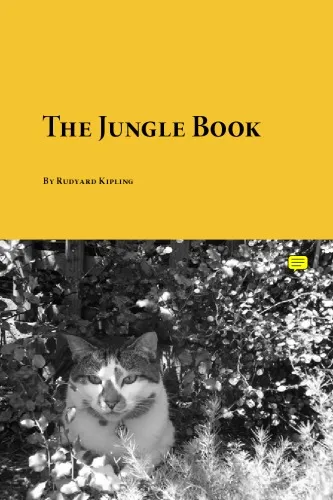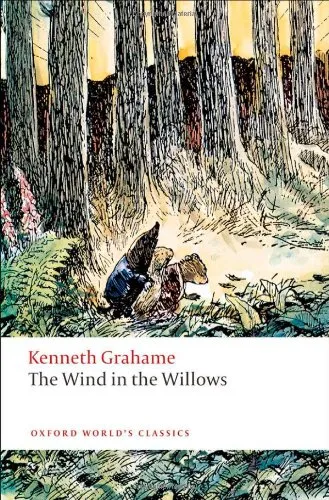The Jungle Book
3.9
Reviews from our users

You Can Ask your questions from this book's AI after Login
Each download or ask from book AI costs 2 points. To earn more free points, please visit the Points Guide Page and complete some valuable actions.Related Refrences:
Introduction to The Jungle Book
Originally published in 1894, The Jungle Book is a collection of stories by the British author Rudyard Kipling. This anthology of stories has captivated readers of all ages with its vivid depiction of the Indian jungle and its fascinating inhabitants.
Detailed Summary
The Jungle Book primarily revolves around the adventures of a young boy named Mowgli, who is raised by wolves in the wild jungles of India. The animal kingdom serves as both his family and his education system. Throughout the book, Mowgli encounters a variety of characters, each contributing to his understanding of the laws of the jungle.
Among Mowgli's chief allies are Baloo the bear, Bagheera the black panther, and Kaa the python. These characters play a significant role in teaching him about the jungle's rules, dangers, and intricate balance of life. Conversely, Mowgli's nemesis is Shere Khan, the man-eating tiger who wishes to eliminate him.
The Jungle Book is not merely about Mowgli's journey. Other stories in the collection include the narrative of Rikki-Tikki-Tavi, a courageous mongoose defending a human family, and the tale of Toomai, a young elephant handler. Each story reflects Kipling’s deep understanding of human and animal nature, alongside themes of courage, loyalty, and the challenge of acceptance.
Key Takeaways
The Jungle Book offers a wealth of lessons that extend beyond its captivating narratives. It explores the idea of identity through Mowgli’s dual belonging to both the world of humans and the jungle. Readers are invited to reflect on the importance of understanding and co-existing with nature.
The book also delves into the themes of maturation and education. Mowgli’s journey symbolizes the transition from childhood to adulthood, guided by experiences rather than traditional schooling. Additionally, Kipling illustrates the hierarchy and laws of animal society, revealing broader truths about social structures and justice.
Famous Quotes from the Book
The Jungle Book is rich with memorable prose that has resonated with readers for generations. Here are a few enduring quotes:
- "For the strength of the Pack is the Wolf, and the strength of the Wolf is the Pack."
- "The jungle is large and the cub he is small. Let him think and be still."
- "Now, don’t be angry after you’ve been afraid. That’s the worst kind of cowardice."
Why This Book Matters
The Jungle Book stands out as a literary masterpiece due to its imaginative storytelling and the profound ethical questions it poses. Kipling’s elegant prose and vivid characterizations have made it a timeless classic.
Beyond entertainment, this collection remains pertinent as it speaks to issues of human interaction with the natural world. With its lessons on moral and social responsibilities, The Jungle Book encourages readers to look beyond the surface and discover the underlying harmony and order of the world around us.
This book continues to matter in contemporary discussions on conservation and cultural identity, bridging the gap between ancient storytelling and modern ecological sensibilities.
Free Direct Download
Get Free Access to Download this and other Thousands of Books (Join Now)
For read this book you need PDF Reader Software like Foxit Reader
Accessing books through legal platforms and public libraries not only supports the rights of authors and publishers but also contributes to the sustainability of reading culture. Before downloading, please take a moment to consider these options.
Find this book on other platforms:
WorldCat helps you find books in libraries worldwide.
See ratings, reviews, and discussions on Goodreads.
Find and buy rare or used books on AbeBooks.



